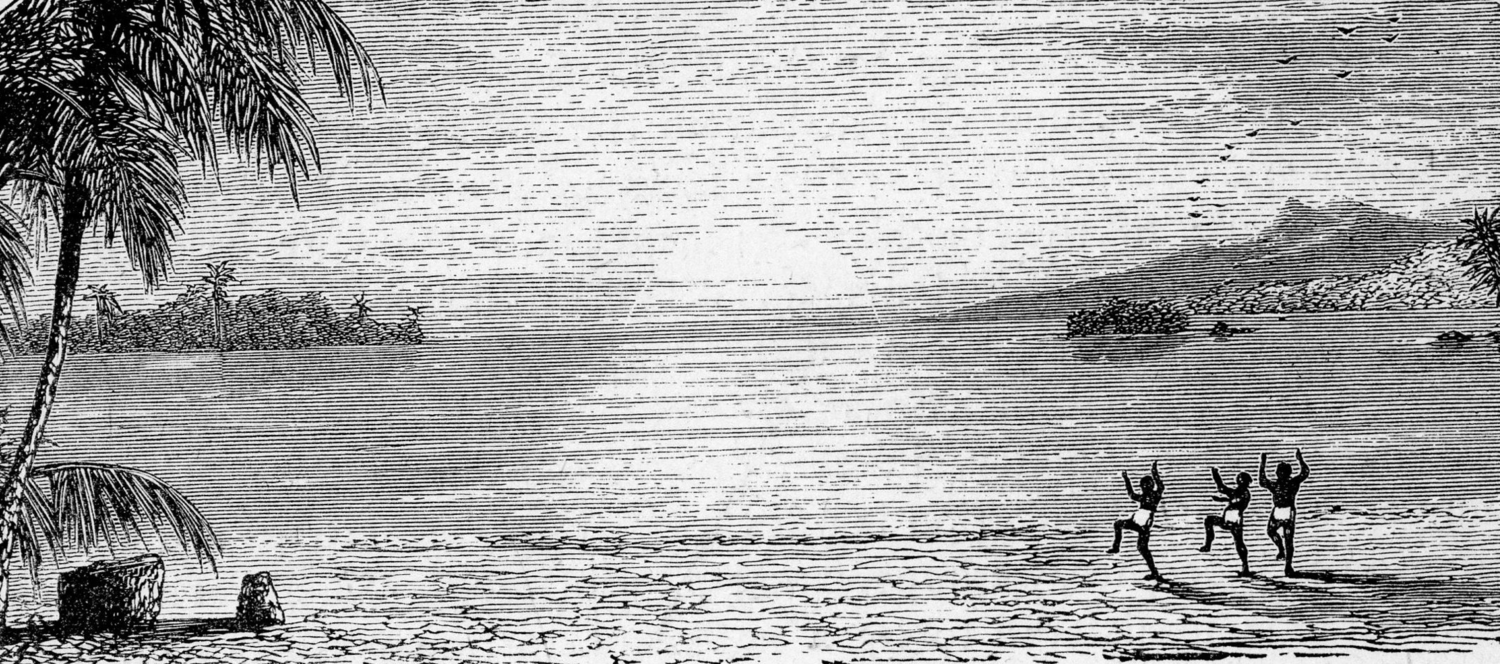Between 1852 and 1872, the Reverend William Wyatt Gill worked as a missionary on the island of Mangaia, the most southerly of the Cook Islands. Gill was an energetic collector of traditional Polynesian lore and a great admirer of what he called the “natural poetry” of “the Polynesian conception of things.”
Here is a sample of his translations of several common Mangaian words and phrases. In Mangaian, Gill writes, the word for “chief” means literally the eye that sees in the dark;
“violent death” is eternal deafness
“humility” is to creep like the roots of a tree
“old age” is a mountaintop yellow with the rays of the setting sun
“a widow” or “widower” is only a bone
“a childless wife” is a foodwaster
“trousers” are covering for the pillars
“dawn” is the dividing of the dark shadow of night
“a waterspout” is a whirling, whirling of the sea
“a cyclone” is a turning upside down
“a victor” is to be standing on your feet
words are said to be eaten and the stomach filled with them.
From William Wyatt Gill, Life in the Southern Isles; or Scenes and Incidents in the South Pacific and New Guinea (London: The Religious Tract Society, 1876), pp. 29–34; engraving p. v.
